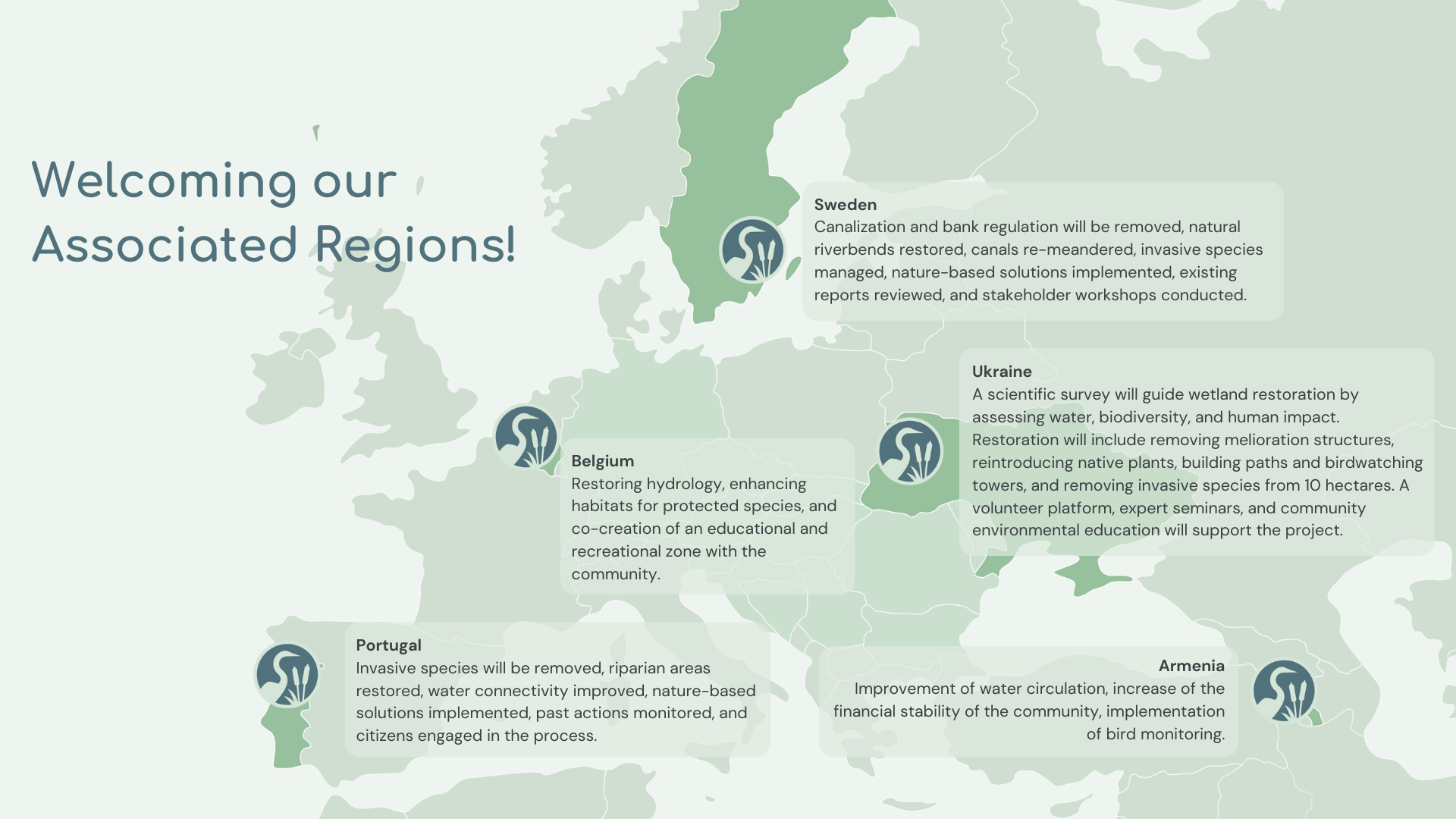
Over 80% of the Danube floodplains and wetlands have been converted to agricultural and industrial areas. Consequently, we are facing severe changes across the Danube basin, such as biodiversity loss, water quality deterioration, and reduced water retention and flood attenuation, which affect both wetlands and the society. Thus, the Horizon Europe project Restore4Life aims at developing an online Wetland Restoration Support System that will support large-scale holistic wetland restoration activities across Europe.
The involvement of citizens in wetland restoration projects is one crucial step in the implementation of wetland restoration. Stakeholder participation in the planning and decision-making of environmental projects is critical for ensuring that nature protection and human well-being are equally considered in the restoration and management of wetlands for the benefit of both. The involvement of stakeholders in environmental projects has been recognized to boost up the quality of decision-making, leading to an improved environmental soundness and social acceptability. Local people also have better knowledge of the wetland and its development over time than any scientist. Thus, their involvement in environmental projects can improve the predictive quality of environmental assessments tremendously. Local people can inform researchers about where and when to install data logger, record amphibians, watch birds, and perform other investigations to get reliable and representative data. When people support scientists in the collection of data, the planning of investigations, or the development of methods, they are called Citizen Scientists.
Citizen scientists are passionate people who assume an important part in the scientific process through their curiosity and fascination for both the science and the topic. Their concern for nature and the biodiversity and functioning of ecosystems is an additional asset for environmental projects. Thus, citizen scientists are a valuable support for the implementation of wetland restoration activities, encouraging and stimulating transformative change towards an ecologically more sustainable society.
Restore4Life strives to empower citizens and stakeholders to actively participate in the project co-design. We will establish local citizen scientists’ groups at various wetlands across Europe to support the monitoring of changes in the wetland initiated by restoration activities. The citizen scientists will help to test, adapt, and optimize methods for the evaluation of the status of ecosystems’ functions and services of restored wetlands across the Danube basin. The tested methods will include both earth observation data and on-the-ground monitoring. Citizen scientists will estimate above-and below-ground carbon stocks of different soils and vegetation types to assess the capacity of wetlands to capture and store carbon. They will evaluate the occurrence of wetland species, such as wetland birds, amphibians, or wetland plants, and monitor local climate and water chemistry data to demonstrate the value of wetlands as biodiversity hot spots and important areas for climate regulation. Citizen scientists will also try to identify and measure wetland habitats via remote sensing using Copernicus and drone data in Restore4Life. This variety of different activities allows us to invite practically all people to participate, independent of age, educational background, capabilities, or simply time availability.
The feedback and suggestions of the citizen scientists for improvements will inform us about which assessment methods are suitable for using them in wetland restoration with Citizen Scientists. Thus, the engagement of Citizen Scientists in Restore4Life is crucial for co-creating methods, which are easily applicable by non-scientists across Europe and provide reliable data of good quality to evaluate the effects of restoration activities on the functioning and ecosystem services of wetlands. The co-created methods will also be integrated in our Wetland4Life App which will guide and support Citizen Scientists in wetland assessments.


